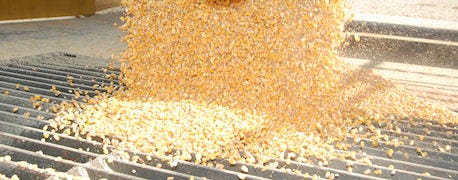June 11, 2013

Syngenta this week announced that eight more ethanol plants have signed agreements to use the company's Enogen corn after the 2011 deregulation of the trait.
Enogen corn is bio-engineered to express a robust form of alpha amylase enzyme in the corn kernel, eliminating the need for liquid alpha amylase enzyme in dry grind ethanol production, Syngenta says.
The ethanol plants signing on for the corn are in Iowa, Nebraska, Minnesota and South Dakota. Six of the eight agreements have been signed within the last six months.
Enogen corn helps reduce the slurry viscosity of corn mash, which enables high levels of levels of dry solids loading, Syngenta says.

Specifically designed corn traits beneficial for ethanol production chain, Syngenta says
Additionally, it has greater process flexibility to capture increased alcohol yield and throughput, reduces consumption of natural gas, electricity and water, improves process stability to reduce the usage of chemicals to manage pH levels, reduces maintenance costs and reduces carbon footprint by more than 10%, according to Syngenta.
"These types of enhancements are critical for ethanol producers as market conditions are constantly fluctuating," says David Witherspoon, head of renewable fuels at Syngenta. "Having the ability to slow down or speed up the production process with minimal adjustments is huge."
Farmers also see benefits, the company says. Ethanol plants pay farmers an average premium of 40 cents per bushel for their Enogen corn. For some farmers, this can mean an extra $80 to $90 per acre.
Enogen trait technology has arrived during a critical time for the renewable fuels industry, Syngenta says. With the Renewable Fuel Standard under heavy scrutiny, and frequent changes in market conditions, Enogen corn can provide a suitable solution to deliver value throughout the entire corn ethanol supply chain.
"At Syngenta, we believe biofuels will play a crucial role in sustaining our national and rural economies, adding value for our nation's corn farmers, and in driving technology developments in agriculture," Witherspoon says.
Source: Syngenta
You May Also Like




